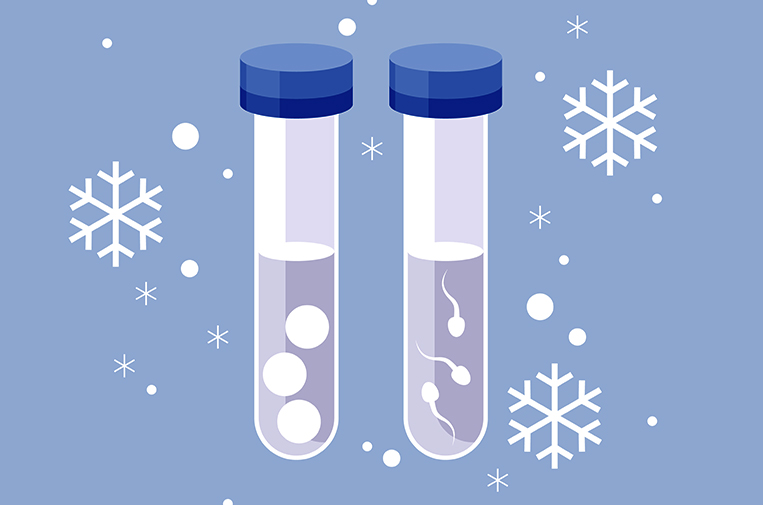Reproductive Science Center of the Bay Area has long been known for its excellent frozen embryo transfer success. While technology has changed over time, RSC has safely cryopreserved embryos since its earliest days, as evidenced by our recent announcement of a healthy boy from a 19-year-old embryo. This baby made history as it was the second oldest frozen embryo that was successfully implanted and resulted in a healthy birth.
Fertility specialists have also used frozen embryos to add to the cumulative success of IVF. A patient can use frozen embryos for a second (or third, or fourth…) chance at pregnancy if the first try does not work without having to undergo another fresh cycle with gonadotropin shots and egg retrieval surgery. They also can use these embryos for a second (or third, or fourth…) child if the first cycle is successful. Or even donate the embryos to an infertile couple.
So it is no wonder that there is renewed interest in frozen embryo transfer success. RSC currently uses vitrification to freeze embryos, as this technology has been shown to cause little or no harm to the embryo. Technically, it is more challenging to freeze embryos using vitrification, but the increased safety for the embryo is well worth it.
Recent studies have shown that there is a higher clinical pregnancy rate after frozen embryo transfer in a controlled or natural cycle compared to an ovarian stimulation cycle with gonadotropins. Shapiro (Fertil Steril 2013) showed that the pregnancy rate from a single embryo transferred in a frozen cycle was 56% compared to a single embryo in a fresh cycle (26%).
Roque (Fertil Steril 2013) also showed in a meta-analysis of 3 studies that frozen embryo transfers resulted in significantly higher ongoing pregnancy rates. A recent meta-analysis by Maheshwari (Fertil Steril 2013) of pregnancy outcomes showed better obstetrical and perinatal outcomes after frozen transfer than fresh.
A Finnish study showed equal rates of prematurity and low birth rates, and better fetal growth. The current theory is that altered gene expression in the endometrium may be present in cycles where high doses of gonadotropins are used, but not in frozen cycles.
Other factors may also contribute to increased success in frozen cycles. There is less stress on the body, both physically and psychologically. Women are not days out from surgery, still with abdominal bloating and pain when they receive their embryos. Instead, the entire treatment cycle consists of only one sonogram and blood draw in most cases.
Additionally, Reproductive Science Center patients have a choice on the day of frozen embryo transfer and can arrange work or childcare schedules to allow for more downtime and a relaxed environment. There is no risk of ovarian hyperstimulation syndrome (OHSS), a rare complication associated with fresh cycle IVF.
We are still accumulating data at RSC to see if elective embryo banking and “Freeze All” cycles are more successful than fresh IVF transfers, but we are confident that they do not lower the pregnancy rate.





